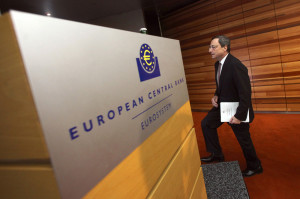ECB gives green light for digital euro project, details revealed
The European Central Bank has given the go-ahead for a multi-year project that would focus on the creation of a digital euro that can be stored on a digital wallet that eurozone citizens can maintain with the ECB.

Already, work has been going on for the past few months on the viability of a digital euro and so far, the bank has not faced any obstacles and it continues to believe that a digital version of the euro is possible. Not only the ECB, but many central banks around the world, including countries belonging to the Eurozone like France and Switzerland, have been testing out their own version of digital currencies and it is only a matter of time before one of them introduces a digital version of their currency and then the race would truly begin.
This digital euro is expected to function as a normal fiat euro except that it will be stored in a wallet with the ECB and there will be limits on how much can be stored in the wallet. This also means that the ECB would continue to control the digital euro and it will never run out of euros. By placing a limit on how much digital euros can be held in the wallet, it will make sure that commercial banks continue to have a viable business and all money would not be sucked out of them.
But this will indeed affect the payments sector the most as this would mean that all forms of digital payment, like e-commerce, shopping, and other small payments that are made by users using the digital payment methods now, can be done via this new digital euro and these transactions would move out of the hands of payment providers like Visa and Mastercard.
The current project is expected to run for at least 2 years which means that the digital euro can be expected to move mainstream only a few years after this project is complete. The ECB would hope that cash and this digital euro can co-exist with each other but purely from a practical usage point of view, it is likely that more and more users would start using the digital euro in the long term as the current generation of users is already tuned to using digital payment methods and prefer them over cash.
The ECB hasn’t specified any details of the technology used and so it could be on the blockchain or any distributed ledger or any existing blockchain like Ripple or Ethereum or they may opt for a totally new way of achieving this that is not related to any of the existing systems.
What will be interesting is to see how they are going to manage cross-border payments and usage especially when other central banks also start introducing their own digital version of their currencies. This is what needs to be carefully managed so that the current financial system doesn’t suffer a breakdown.









